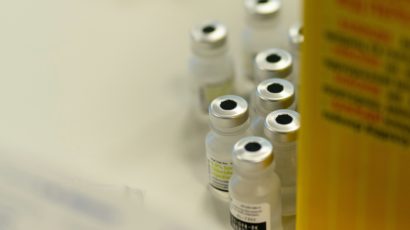Posted by Dr Michelle Wright
Immediate first aid could save a life
How to help with drowning; the importance of knowing how to react in a drowning situation and how immediate first aid could save a life.
A real-life emergency
Last weekend, members of the public helped to rescue a 6-year-old girl from Lake Zug, immediately calling the emergency services and starting resuscitation. Their prompt action and the fast arrival of the medical team meant that the girl soon began breathing by herself again, and she was transported to hospital by helicopter for further treatment.
The first thing to remember is not to put yourself at risk.
- In first aid terms, we say: shout, reach or throw, don’t go.
- Shout to the person; get the person out of the water – if they’re still conscious, reach for them using a stick, a rope, or clothing, or throw a buoyancy aid to them.
- Don’t enter the water yourself unless you are trained to do so.
- If you must enter the water, take a boat or a buoyancy aid with you.
Once the person is safely by the water’s edge, check for a RESPONSE:
- To do this, shake their shoulders.
- Speak to them – ask them: “Can you hear me? Are you OK?”
If they ARE RESPONDING:
- Remove any wet clothing, dry the person, and keep them warm.
- And CALL 144 for an ambulance here in Switzerland – just thinking about the summer holiday season almost upon us, remember that 112 is the Europe-wide emergency number.
- The person must be checked over by a doctor, even if they appear well, as they may have taken water onboard into their lungs.
If they ARE NOT RESPONDING:
- Open their AIRWAY. With the person lying on their back, place one hand on their forehead and the other under their chin. Gently tilt their head back and lift their chin – this movement will open their airway.
- Then you can check for normal BREATHING – look to see if their chest is rising and falling, listen for breaths, feel for breaths on your cheek. But for no more than 10 seconds.
- Shout for HELP, if it’s not already on the scene.
If they ARE BREATHING:
- Put the person into the RECOVERY POSITION – the safe position for an unconscious person with them lying on their side.
- Call 144 or 112 for an ambulance; dry them and keep them as warm as possible.
If they ARE NOT BREATHING:
- Again, make sure that an ambulance has been called.
- For a child, give 5 RESCUE BREATHS. Pinch their nose and make a seal around their mouth with your mouth, breathing into their mouth 5 times.
- Then give 15 CHEST COMPRESSIONS in the centre of their chest using one of your hands.
- Then give cycles of 2 BREATHS and 15 CHEST COMPRESSIONS until the emergency services arrive, or the child starts responding.
- For babies – that’s children under the age of 1 – the slight difference is that you can make a seal around their nose and their mouth with your mouth when giving breaths. You don’t need to pinch their nose. When giving chest compressions, use 2 fingers from one of your hands, pushing down in the centre of their chest.
- When resuscitating an adult, it’s slightly different: you start with 30 chest compressions using 2 hands in the centre of their chest, and perform cycles of 30 compressions and 2 breaths, until the emergency services arrive, or they start responding.
Hopefully that reminder, following the Swiss Resuscitation Council guidelines was useful. Of course, joining a first aid training can give you the opportunity to practice these techniques on realistic manikins.





